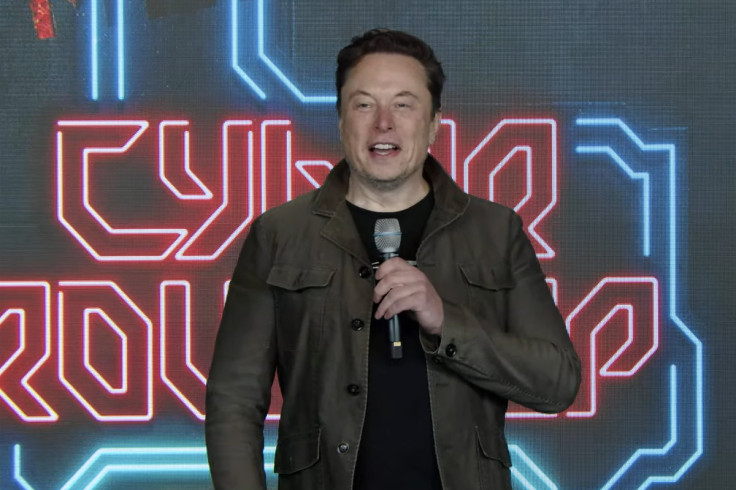
Tesla shareholders voted in favour of Elon Musk's pay package at Thursday's annual meeting, following weeks of campaigning by the company. However, he will not receive the compensation immediately.
Tesla shareholders endorsed a $45 billion pay package for Musk following a hard-fought vote of confidence. The result comes as the 52-year-old billionaire tycoon battles for the largest-ever executive compensation package awarded by a US publicly traded company.
Musk Wins Shareholder Vote on $45 Billion Pay Package
Basking in the victory, Musk took the stage with a hearty, "Hot damn, I love you guys!" This shareholder vote came after a Delaware judge in January struck down Musk's original, significantly larger compensation plan, valued at roughly $56 billion, which had angered Musk.
The court disqualified Musk's compensation package because the Tesla board lacked sufficient independence from his influence. The judge also found the process to determine the original dollar figure illegitimate.
This outcome strengthens Musk and the Tesla board's position after their vigorous campaign for shareholder approval. It could counter the Delaware judge's earlier ruling invalidating the award.
The shareholder vote indicates that they were informed about the compensation package and the board's relationship with Musk before deciding. Tesla's board cautioned that Musk might leave the company if the pay package wasn't approved.
Putting this speculation to rest, Musk expressed confidence in his strong support from investors on Wednesday evening.
In the lead-up to the vote, prominent shareholders like Norway's sovereign wealth fund, the California State Teachers' Retirement System, and proxy advisory firms Glass Lewis and Institutional Shareholder Services (ISS) all opposed the compensation package.
Despite shareholder approval, Musk won't immediately get his compensation due to potential legal challenges. The court's previous concerns regarding board independence and the fairness of the package are likely to be central points of future disputes.
Lawsuits Cloud Future of Pay Package Despite Shareholder Approval
Initially approved in 2018, Musk's compensation plan faced a roadblock in January when a Delaware judge invalidated it following a Tesla shareholder lawsuit. The lawsuit argued the agreement was "beyond the bounds of reasonable judgment."
The Musk-led automobile company is still mum on the number of votes cast in favour of the proposal. Additionally, while shareholders approved Tesla's relocation to Texas on Thursday, this move won't immediately impact the compensation plan's legal challenges.
The Delaware courts will retain jurisdiction in deciding whether to reinstate the pay package. "The lawsuit in Delaware will continue," Ann Lipton, a business law professor at Tulane University Law School, told Business Insider.
"The new vote was conducted while Tesla was still a Delaware company and is subject to Delaware law — a point that Tesla made in its SEC filings. So, it's now up to the Delaware courts to determine if the new vote actually does have a ratifying effect."
Last month, Tesla filed with the Securities and Exchange Commission, assuring Delaware Chancellor Kathaleen McCormick they wouldn't challenge the pay ruling in another jurisdiction, such as Texas courts.
Regardless of the judge's ultimate decision regarding the shareholder vote, Lipton anticipates an appeal from the losing party, prolonging the legal battle.
Columbia University Law Professor Dorothy Lund predicts a potential months-long wait for resolution. This hinges on Judge McCormick's decision on legal fees in the case. However, Professor Lund expects Tesla to likely appeal the ruling, escalating it to the Delaware Supreme Court.
"Tesla hasn't officially decided to appeal but all signs are pointing to that," Lund said. "They have a long way to go before Elon will be paid," she added.
Corporate law expert Anat Alon-Beck of Case Western Reserve University predicts this case could spark further lawsuits. A group of Tesla shareholders filed a separate lawsuit on Thursday, alleging that Musk diverted artificial intelligence talent to his other company, xAI, which could harm Tesla's AI efforts.
Although Musk forgoes a traditional salary at Tesla, his compensation hinges on the company's performance. It is tied to achieving 12 pre-determined milestones within a 10-year timeframe.
Each milestone reached unlocks a tranche of stock options, equivalent to one percent of Tesla's outstanding shares at the time of the grant. According to Tesla, all 12 targets were met by 2023.







